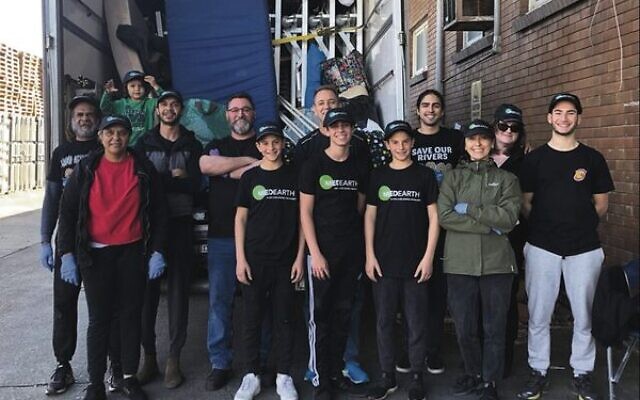Helping global healthcare and the planet
'So far, we've saved over 300 tonnes of items going to landfill, which is about the weight of a Boeing 747.'

MEDEARTH – co-founded 10 years ago by Jewish Sydneysiders Laura Taitz and Lara Garfinkel – is an environmentally focused medical aid charity that began on a modest scale.
It recovered unused surplus equipment and supplies from a single Australian hospital, and redistributed them to medical facilities in developing countries and natural disaster zones.
A decade on, MedEarth works with 60 Australian hospitals and medical clinics, and stores their unwanted surplus stock in rented warehouse space in Alexandria in inner Sydney.
After its medical subcommittee thoroughly assesses applications for assistance, it redistributes the sought-after equipment, for use in nations mainly in Africa, Southeast Asia and the Pacific.
MedEarth also donates to rural Indigenous communities across Australia, and to wildlife sanctuaries and animal hospitals in developing nations.
Taitz said MedEarth has two main aims – to save thousands of tonnes of usable medical items from going to landfill, and to save lives by distributing it to disadvantaged communities.
“So far, we’ve saved over 300 tonnes of items going to landfill, which is about the weight of a Boeing 747.”
Last month, MedEarth partnered with SmartAid Australia to donate pallets of medical equipment to a hospital in Hatay, in Turkey’s earthquake disaster zone.
In the first year of the pandemic, MedEarth donated four ventilators to Timor Leste’s health department, which increased the total number of ventilators in the tiny island nation to five.
Other countries to benefit from donations from MedEarth since 2020 include Nigeria, Zambia, Burundi, Kenya, Liberia, Congo, Fiji, Papua New Guinea and the Solomon Islands.
“Another example that stands out in terms of impact was when a hospital in Sri Lanka approached us for assistance in setting up that country’s first palliative care unit,” Taitz said.
“We helped to equip it by donating two shipping container loads of beds, and other basic items they needed to look after the patients at the end of their lives, with dignity.”
Taitz said the idea for MedEarth came from meeting the founder of a similar organisation in the US called MedWish, and realising that nothing like it was available here.
Garfinkel left the board in 2017 to join the Australian Jewish Fertility Network, and although MedEarth is a secular charity, six of its nine current board members are Jewish, including Taitz’s husband Jonny, who is a doctor and a board member of JewishCare NSW.
Several board members are recent participants of JCA’s Observership Program.
MedEarth now uses an innovative inventory management software to efficiently track all items that come and go from its warehouse, it has introduced an online application form for organisations requesting donations of essential medical items, and it’s in the process of developing a prototype to automate the donation process.
Taitz said all donations to MedEarth are tax deductible, and donations enable it to continue to operate.
“And because we track everything, we are able to tell people this is the difference your donation has made, and which community it has gone to, so that they can see the impact made.”
To find out more, visit medearth.org

comments